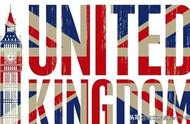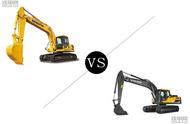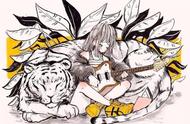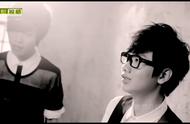初三英语上册第二单元考点精讲:
考点1,Sb looks good in 颜色 某人穿某种颜色的衣服好看
Sth looks good on sb = sth fits sb well 某物穿在某人身上好看
2,wear, put on ,dress, have on, be in 与 be dressed in 辨析
Wear:穿着,表示状态。可用于进行时和一般现在时。宾语可以是衣服,鞋帽,首饰,眼镜,发型,手表,香水等等。
Put on ,表穿上,戴上,强调穿的动作。用于穿鞋,带帽,穿衣服等。
Dress,给..穿衣服,指动作,宾语为“人”,常用短语dress sb/oneself, 也可用作不及物动词,表示穿上衣服。
Have on ,穿着,指状态,不用于进行时态。
Be in 穿着,指状态,宾语可为衣服,鞋帽,还有颜色。
Be dressed in ,穿着,指状态,宾语可为衣服,鞋帽,还有颜色。
举例:
Millie often wears a blue coat.
Please put on your coat.
My mother dressed me every day when I was a little child.
My father washed his face, dressed and went out.
She always has her black shoes on.
The little girl is in a beautiful hat.
The little girl was dressed in white like an angel yesterday.
速记口诀:
英语“穿戴”有讲究,动作“穿戴”put on,状态“穿着”用wear,还有三个与wear同义:have on, be in , be dressed in , dress 用法要记牢,只能接人做宾语。
考点3,There’s nothing wrong with.. ...没问题
=there isn’t anything wrong with...
=Nothing is wrong with ...
e.g. There is nothing wrong with your computer. It works very well.
=There is not anything wrong with your computer....
=Nothing is wrong with your computer. ...
Is there anything important in today’s newspaper? 形容词修饰不定代词如something, anything, nothing, nothing, somebody, someone, anybody, anyone, nobody等,形容词要放在不定代词之后。
考点4,relaxed, adj,放松的,自在的,做放松含义时,常作表语,强调人的感受。
Relaxing,形容词,意为“令人放松的”,可作表语或定语,往往修饰事物。
e.g. Listening to music can make you feel relaxed.
My mother likes relaxing films.
类似用法词语联想:
Interesting/interested, exciting/excited, amazing/amazed, surprising/surprised
考点5:
Prefer vt, 宁愿选择,更喜欢
过去式和过去分词为preferred,现在分词preferring。
1. prefer可单独使用,也可后跟名词、代词,意为“喜欢某人或某物”。如:
Which subject do you prefer, English or maths? 英语和数学,你更喜欢哪一科?
Do you prefer apples or bananas? 你更喜欢苹果还是香蕉?
2. prefer后可接v-ing,也可接不定式,表示“宁愿做某事”,“特别喜欢做某事”。如:
Few children prefer working to playing. 很少有孩子只爱工作不爱玩耍。
I prefer to buy new cards. 我宁愿买新的卡片。
3. prefer后接不定式的复合结构作宾语,即prefer sb. to do sth.表示“宁愿某人做某事”。如:
I prefer him to do it in a different way. 我更希望他用不同的方法去做。
4. prefer...to...意为“喜欢......而不喜欢......”“喜欢......胜过......”“宁愿......而不愿......”用作宾语的是名词、代词或v-ing,其中to是介词,不是动词不定式符号。如:
He prefers English to Chinese. 比起语文他更喜欢英语。
He prefers swimming to surfing. 同冲浪相比,他更喜欢游泳。
She preferred cooking at home to eating in restaurants.(与进餐厅相比,她更倾向于在家做饭吃。)
5. prefer to do sth rather than (to)do sth.表示“宁愿做......而不愿做......”此结构中,prefer后须跟动词不定式,而rather than后则接带to或不带to的不定式均可。如:
She prefers to stay at home rather than (to)go with us. 她宁愿呆在家里,也不愿和我们一起去。
考点6:
Remind vt 提醒,使想起
Remind sb of sth 使某人想起某事 remind sb to do sth 提醒某人做某事,remind sb that从句
He reminds me of his brother.
Our teacher often reminds us to protect our environment.
考点7:
Require vt 需要,要求
require sb to do sth 要求某人做某事
require sth 需要某物
require doing =require o be done ...需要做
e.g.
They required us to carry out the plan. 他们要求我们执行这项计划。
The little cat requires a lot of care and attention.这只小猫需要悉心照料。
The clothes require washing.=The clothes require to be washed.
My mother requires me to water the flowers every day.
考点8:Wearing red can also make it easier to take action. 穿红色衣服也更容易行动。
Make it adj (for sb) to do sth. (对某人来说)使得做某事怎么样
Mobile phones make it easier for people o keep in touch. (it为形式宾语, for people to keep in touch为真正的宾语)
We think it important for us to learn English well.
类似用法:
Find adj (for sb) to do sth ( 对某人来说)发现做某事怎么样
Think it adj (for sb) to do sth (对某人来说)认为做某事怎么样
考点9:
Difficulty n 困难,费力
Have difficulty (in) doing sth 做某事困难,费劲
Without difficulty 不费劲
Many men still have difficulty accepting a woman as a business partner.
做某事有困难的表达方式还有:
Have trouble (in) doing sth hav difficulty with sth
e.g. He told me he had great difficulty with his maths.
考点10,decid
Decision n 决定
Make/reach a decision 做决定 make a decision to do sth 决定做某事
We made a final decision that we would help the poor children in the school.(同位语从句)
Decide to do sth 决定做某事,否定形式在decide 后加not
She decided not to attend the party.
考点11,certainly adv 必定地,无疑地
Several countries certainly hope so.
We certainly can’t forget that.
Certainly用于be动词,助动词和情态动词后,行为动词前,在否定句中,用于be动词,助动词和情态动词之前。当然也可以单独使用,表示当然可以,可以与sure,of course互换:
-----Could you help me close the window? -----Certainly!
考点12, made有关的常用短语搭配:
Be made of 由....制成,表示制成成品后,仍可以看出原材料,事物发生了形态的变化。
Be made from 由...制成,表示制成成品后,不能看出原材料,事物发生了质的变化。
Be made in 在...制造,in 后接表示地点的名词。
Be made by 由...制造,by后接人
e.g.
The bridge is made of stone.
The paper is made from wood.
This machine is made in China.
The chair was made by workers.
考点13,Should I stay at home instead of going shopping with my classmates? 我应该待在家里而不是和同学一起去购物吗?
instead , instead of 区别
Instead 副词,意为“代替,反而”,通常用于句末,上句含有否定意义时,它可用于句首来引出下句并提出相反的情况。
Instead of 介词短语,意为“代替...,而不是...”,连接否定的内容,常用于句中,后跟名词,代词,或动词-ing形式。也可以用于句首。
On Sunday, he likes to stay at home instead of going out. 他周日喜欢待在家里而不喜欢出去。
---Will you go shopping today? --- No, I‘ll stay at home instead.
考点14,It is often used for celebrations!
celebration可数名词表庆祝活动,常用短语:have/hold a celebration, 作不可数名词表示庆祝 :The twin sisters held a party yesterday in celebration of their 22nd birthday.
动词形式为celebrate 表庆祝
He celebrated his birthday last weekend.
Use相关重点短语
Be used for sth/doing sth 被用来... (被动语态)
Be used to do sth 被用来做某事(被动语态)
Be usded to doing sth 习惯于做某事 (used为形容词,习惯于)
Used to do sth 过去常常做某事 (used为动词use过去式)
考点15,find out, invent, discover 用法区别
Find out 意为查明,弄清楚,是指通过观察,探索发现事实的真相。
Invent 意为发明,是指运用想象力创造出新的事物。
Discover 意为发现,发觉,是指发现本来已存在但以前未被发现的事物,或对发现者来说是新事物。
Gilbert discovered electricity, but Edison invented the light bulb.吉尔伯特发现了电,但是爱迪生发明了电灯泡。
I will find out who broke the window. 我会查明是谁打破窗户的。
Do you know who invented the steam engine?你知道是谁发明的蒸汽机吗?
,










